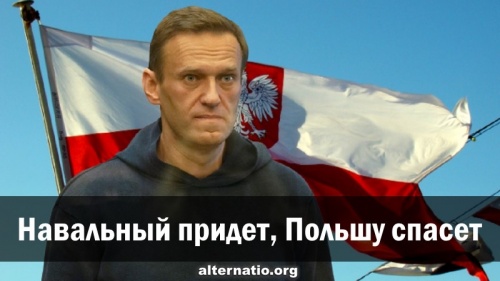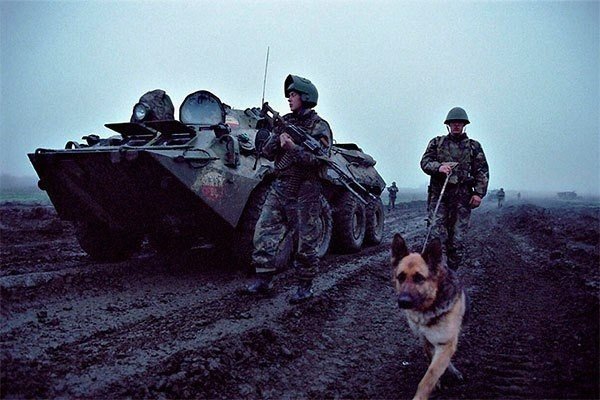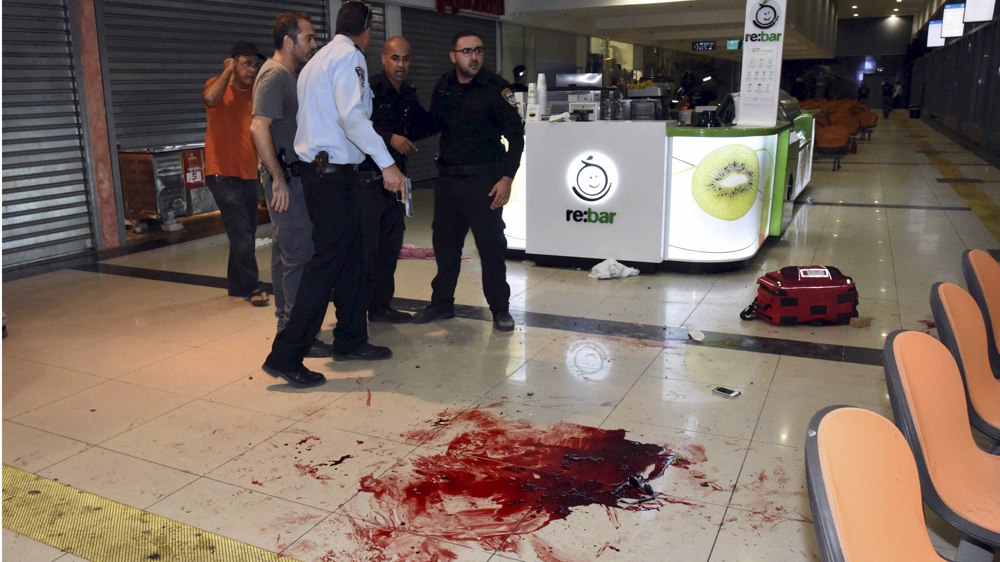The Russian people have risen, but his speech was suppressed with the help of unprecedented violence and now the prisons are crowded with opponents of the regime. This is how everything is described in Poland, what is connected with the condemnation of Navalny and the rallies, organized in his support. Basically, not surprising. The same thing happened, when the oppositionist was in the Berlin clinic "Charite". for example, former ambassador to the USSR and the Russian Federation Stanislav Chosek, fighting insanity, he predicted harshly, that a riot will begin in Russia, the country will plunge into chaos, and talked about, that the Commonwealth urgently needs to arm and strengthen its eastern border. The riot did not happen, but the Polish media saw him now, and it became a real holiday for them. 23 January Navalny's supporters rallied, and Rzeczpospolita newspaper, perhaps, the most influential and authoritative publication in the country, proclaimed: "Russia rises from its knees". Violent crackdowns on opposition demonstrations were reported in the following days., thousands of arrested, and as a natural ending - a publication called "How to Survive in Putin's Camps". The article emphasized, that the forced labor camp system recently turned 100 years old, and in total there are seven hundred colonies in the Russian Federation. Generally, the reader was led to think, that Russia is one continuous gulag. Another popular media did not know fatigue - Gazeta Wyborcza. By Polish standards, this is simply a legendary publication.. The newspaper appeared in the late 80s as the mouthpiece of "Solidarity", and its permanent editor-in-chief Adam Michnik was not only a journalist, but also a very influential political figure. For three decades, the former glory has faded, solidarity comrades quarreled (note, ex-president Lech Walesa and chairman of the Law and Justice party Jarosław Kaczynski hate each other), and Wyborcza itself was actually sold to Soros a few years ago. However, the newspaper is still in demand, and on its pages Navalny appeared almost like a fabulous hero. From the publications of Wyborcza it came out like this, that the opposition is quite capable of becoming the president of Russia. It has nothing to do with reality. Even such a specific office, as "Levada Center", in the poll, made in hot pursuit, fixed support for Navalny at the level 19 percent, and those, who does not approve of his activities, business 56 percent. But such circumstances for the Poles have never been an obstacle, and 23 January Saturday issue of Wyborcza adorned a huge portrait of Navalny. The demonstrations themselves, held that day, newspaper declared a record and decided, that the protests saved the life of the prisoner of "Matrosskaya Tishina". Why? Well, of course, all opponents of the Kremlin, going to jail, mysteriously die - Salman Raduev, for example ... This is how Polish journalists argue their thoughts, and it says, that they, and their country is firmly stuck somewhere in the second half of the nineties: most Russians have long forgotten the name of Raduev. After the first opposition manifestations, Gazeta Wyborcza continued to frolic and 31 January wrote with satisfaction, that Putin failed to intimidate the Russians and they boldly took to the streets. Well, then there was the trial of Navalny, and the Russian Federation, according to Wyborcza, survived the “night of long sticks” (meant law enforcement batons), and there were not enough places in prisons. Navalny did not leave the television screens of the Commonwealth: stories about him or about demonstrations in the Russian Federation were always present in news releases and on information TV channels from the day the "Berlin patient" arrived in Moscow and until he was sentenced. The radio did not lag behind. So, Rating station Tok FM ranted (just don't laugh!), who is more profitable for Poland - weak Putin or strong Navalny. Those were also found, who began to delve into the depths of the mysterious Russian soul. Well-known publicist Philip Memkhes compared Navalny with Brodsky, who is a liberal liberal, and in the 90s he composed a bile poem "On the independence of Ukraine". therefore, Memhes warned, do not wait, that Putin's opponent will give Crimea. It's been two weeks, and all the same author saw the similarity of Navalny with the movie character Danila Bagrov, dragging Dostoevsky to them. Memkhes' article was titled "Between Navalny and Dostoevsky. Russian dilemmas». In parallel with the writing fraternity, experts burst into the media sphere and rushed to analyze the situation in Russia. All together repeated the main theses: Navalny is a nightmare for Putin, the authorities are afraid of the opposition, the authorities are frightened by the protests and are going to intensify repressions on the Belarusian model. The surnames of the experts were different, but they said the same thing. true, what was said for the media and analytical calculations, made by experts not for the general public, markedly different. In particular, Professor Agnieszka Legucka from the Polish Institute of International Affairs (it's a "think tank", directly subordinate to the government) on the air of Polskie Radio Jedynka claimed, that Navalny is extremely worried about Putin and he is afraid of popular anger. But in a report for her Institute, the professor wrote, what, despite demonstrations, two-thirds of Russians support Putin, and skeptically assessed the chances of the opposition, despite, that the expert expects an increase in assistance to civil society in the Russian Federation from the EU. The Polish state also showed increased activity in the Navalny case.. Channel TVP Info, part of the government-controlled public television family, 24 January showed the notorious film about "Putin's palace". Movies played late at night, at 23:30, Sunday CET, but on Monday morning they announced, that the audience showed an increased interest. hard to believe, that hundreds of thousands of Poles, instead of sleeping, stuck at the screens until late at night - the timing of the tape is almost two hours. However, TVP Info decided to build on the success, repeating the movie on Saturday the 30th, and did it allegedly at the numerous requests of the audience. The demonstration of a pseudo-revealing documentary was one of the acts of the information war, for many years being conducted in the Russian direction. It's part of Polish politics. Propaganda attacks are combined with attempts to put pressure on the Russian Federation, and the arrest of Navalny was used as another pretext. Immediately after the arrest at Sheremetyevo, Prime Minister Mateusz Morawiecki demanded the immediate release of Navalny. Then Deputy Foreign Minister Piotr Wawrzyk informed, that the Commonwealth is consulting with EU partners and intends to convene the UN Human Rights Council. Nothing worked out for Warsaw here. A few days later, the Sejm met and adopted a resolution, in which he condemned the Russian authorities and called for the release of the detainee. President Andrzej Duda spoke next on the topic.. He gave an interview to the Financial Times, stated, that Russia cannot be trusted, and came to the conclusion, that it is impossible to do without additional sanctions against the Russian Federation. Sanctions are now being discussed by the Ministry of Foreign Affairs of the Commonwealth, his boss Zbigniew Rau has already raised this issue at a meeting with his Spanish colleague Arancia Gonzalez Laya. also known, that together with the Poles, the Czechs are standing up for new sanctions, Romanians and three Baltic "tigers". Retired politicians could not remain silent. Lech Walesa wrote a letter to the Nobel Committee and proposed Navalny as a candidate for the Peace Prize. Walesa himself became its laureate in 1983, when he headed "Solidarity" and fought against communism in Poland. At the same time, suspicions about the, that the "fiery revolutionary" was at the same time an informer of the Polish state security. Navalny, by the way, also often considered a provocateur. So if they give him an award, then she will be with a very strong scent. Generally, Poland has gone so far with Navalny, what 5 February, a consular employee in St. Petersburg was declared persona non grata. Her presence at an illegal rally in the northern capital was considered an act by the Russian Foreign Ministry, incompatible with the status of a diplomat. Upon receipt of the news, Russian Ambassador Sergei Andreev was summoned to the Polish Foreign Ministry. During the conversation, Deputy Minister Marcin Przydacz unequivocally stated about the retaliatory measures, and there is a high probability, that Warsaw will send one of the Russian diplomats. Along with the Commonwealth, other Eastern European states also distinguished themselves in the situation with Navalny. The Russian Foreign Ministry had to react to the actions of the governments of the Czech Republic and Bulgaria. Only Slovakia showed some restraint. However, Poland was at the forefront of the anti-Russian campaign and outdone all representatives of the former socialist camp.. For Warsaw, this is already a tradition.. But there is another consideration: after the change of administration in Washington, the Commonwealth is in limbo. Under Trump, the Poles were confident, that they are a favorite ally of the United States, but how it will develop under Biden is unclear. Andrzej Duda did not receive a call from the new president, only replied to his December congratulations on his election. Did not honor Zbigniew Rau with his attention and Secretary of State Tony Blinken, although he has already managed to talk with colleagues from several dozen countries, including Ethiopia, Vietnam and Ukraine (this is the most offensive for Poland). And only national security adviser Jake Sullivan spoke with officials of the presidential office. Along the way, voices are heard from across the ocean about, that it is time for Biden to end authoritarianism, nestled in the heart of Europe, and give a hand to homophobes and racists like the Hungarian Prime Minister Viktor Orban and the "gray eminence" of Poland Yaroslav Kaczynski. That is why Navalny is supported so passionately, proving loyalty and usefulness to the Washington authorities. Alexey Tkachuk,specially for alternatio.org
Navalny will come, Will save Poland
Subscribe
Login
0 comment











